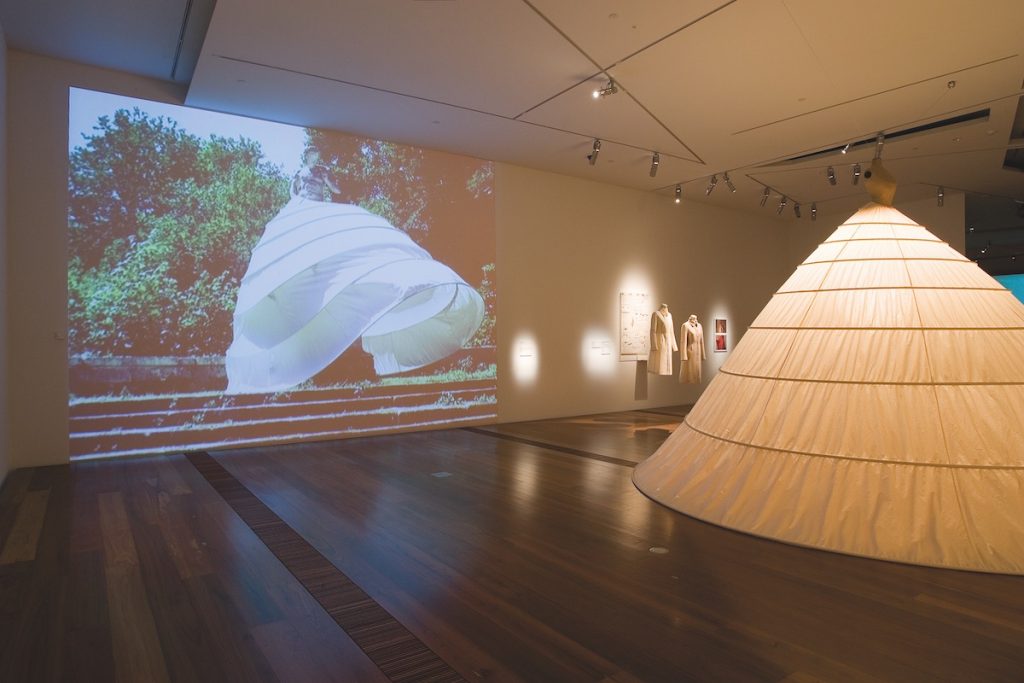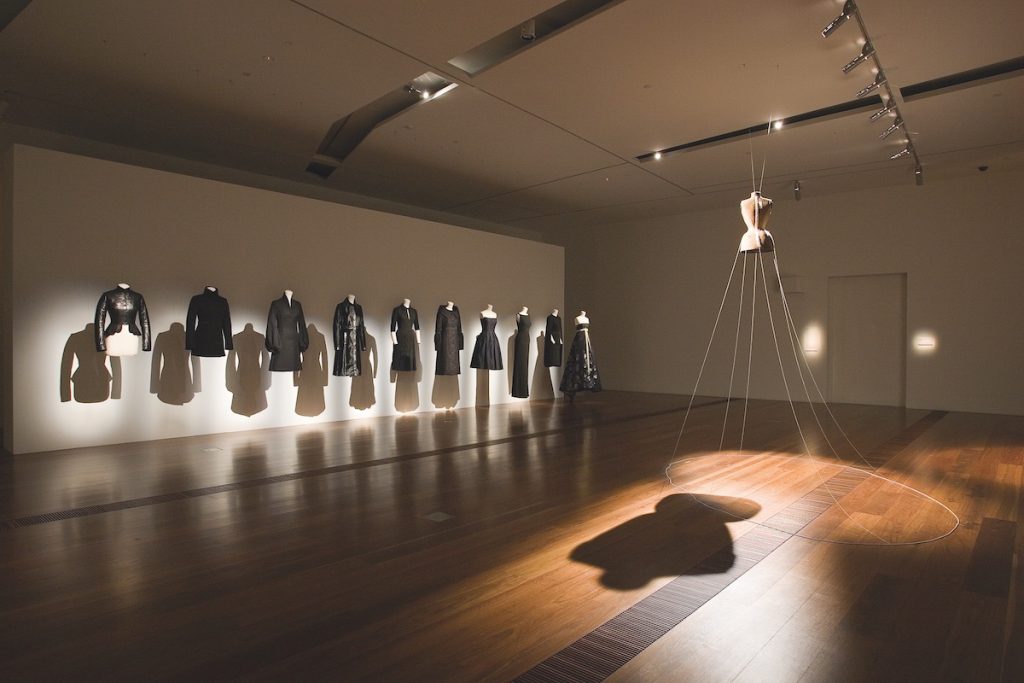Martin Grant: Paris
This exhibition celebrates the work of Australian-born contemporary fashion designer Martin Grant. It presents works spanning the years from the early 1990s, designed after he established his label in Paris, through to his most recent collection for spring-summer 2006. The exhibition draws together garments, drawings, paintings, photographs and installations created by Grant and other key artistic collaborators. These selected works offer an insight into Grant’s influences and the recurring themes and sculptural forms that characterize his approach to design.
Martin Grant began his career as a young fashion designer in Melbourne in the early 1980s. He was part of a thriving independent fashion scene and an active participant in the Fashion Design Council parades, which were known for their innovative approach to the presentation of contemporary Australian fashion. After seven years of successfully running his own fashion label in Melbourne, Grant formally undertook studies in sculpture at the Victorian College of the Arts. Travelling to the United Kingdom in 1990, Grant then worked for two London-based fashion houses before making the decision to move to Paris. In 1992, Grant re-established his fashion label and four years later opened his own boutique in the Marais district.
Martin Grant’s designs reflect his refined understanding of structure and volume. Each garment is constructed in such a way as to maintain a direct relationship to the body as a sculptural form. His working method is focused on the development of a design through the direct manipulation of fabric on a dressmaker’s mannequin. Designs rarely begin as a detailed two-dimensional sketch, but emerge from an image held in Grant’s imagination. Throughout his career Grant has preferred to work with a restricted colour palette, with classic fabrics such as felted wool and silk satin, and with very limited use of surface embellishment. The emphasis in his work is on bringing clarity to each form, whether it is a garment or a sculptural installation. This concerted restraint is underpinned by beautiful detailing and immaculate finishing, each the result of a deep appreciation of the traditional techniques that sit at the heart of bespoke tailoring and couture practices.
Photo courtesy of National Gallery of Victoria, Melbourne

